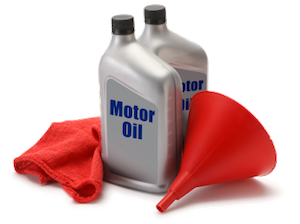
Introducing the ACEA E8 and E11 Specifications
2022 brings a long-awaited update of the ACEA Engine Oil Sequences in the heavy-duty category, which have not been
updated since 2016. E8 replaces E6, while E11 replaces E9 starting from May 2022. So, the currently valid ACEA
heavy-duty categories are E4, E7, E8, and E11.
ACEA members who are heavy-duty vehicle manufacturers keep improving their vehicles' drivetrains continuously. The
goal of this improvement is two-fold:
- Improving fuel efficiency
- Improving the performance of the drive train
In the meantime, it is of the utmost importance that these modern heavy-duty diesel engines meet the strictest
environmental limits when it comes to emission.
Main similarities and differences:
- E8 and E11 still limits the ash content in maximum 1%, just like E6 and E9 did.
- HTHS viscosity is still at least 3.5 mPa*s, so there is still no low-HTHS viscosity heavy-duty category in existence.
- New COAT (Caterpillar Oil Aeration Test) tests are used in case of E8 and E11. Limits are similar to those of API CK-4.
- Soot limits became slightly stricter across all E categories.
- New piston cleanliness tests have been introduced. At the same time, cleanliness standards for E8 and E11 increased, compared to E6 and E9.
E8
The ACEA E8 category demands stay-in-grade performance, piston cleanliness, plus good soot-handling and anti-contaminant properties. Oils meeting this specification must provide excellent anti-wear properties and good stability throughout the drain interval.
This category meets the requirements of EURO VI engines and is backward compatible with the environmental requirements of the EURO V, EURO IV, EURO III, EURO II and EURO I engines operating on extended drain intervals. (Always follow manufacturer guidance about the oil drain intervals!)
E8 category oils are suitable to be used in engines fitted with EGR (Exhaust Gas Recirculation) and SCR (Selective Catalytic Reduction) systems. This specification requires the oil to have a low sulphated-ash content (less than 1%), and is recommended for engines equipped with diesel particulate filters that require low ash engine oils. These oils are also suitable for engines operating on fuel with limited sulfur content.
Recommendations and maintenance guidelines may differ by manufacturer, and these should always be taken into account. Always choose a motor oil that meets the specifications set by the OEM.
E11
Successor of E9, this high viscosity-index category emphasizes piston cleanliness, and sets strict limits to attributes that impact bore polishing. The specification concentrates on wear prevention, soot handling and contaminant neutralization. Engine oils meeting this specification are suitable to be used in diesel engines operating in heavy-duty applications. Such oils can be used in EURO VI engines and are backward-compatible with EURO V, EURO IV, EURO III, EURO II and EURO I engines operating on extended drain intervals. (Always follow manufacturer guidance about the oil drain intervals!)
This specification requires the oil to have a low sulphated-ash content (less than 1%), and is recommended for engines equipped with diesel particulate filters that require low ash engine oils. These oils are also suitable for engines operating on fuel with limited sulfur content.
Recommendations and maintenance guidelines may differ by manufacturer, and these should always be taken into account. Always choose a motor oil that meets the specifications set by the OEM.

Our app for iPhone and iPad.



